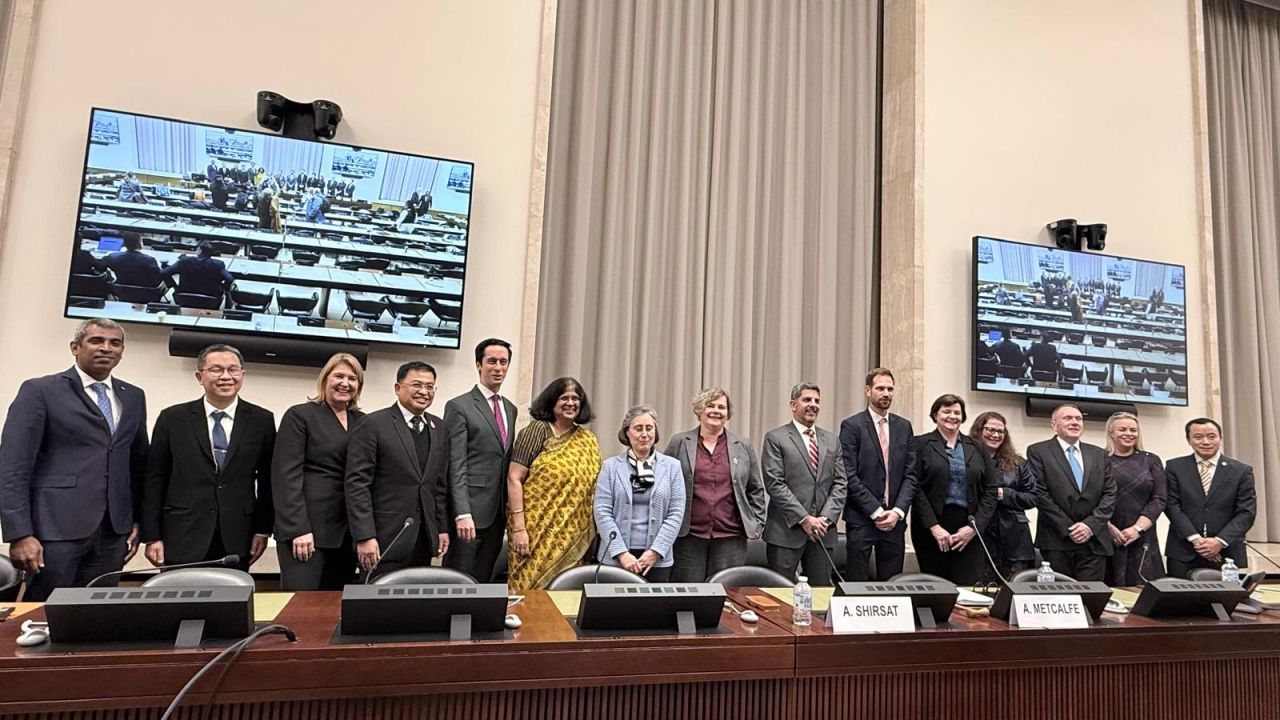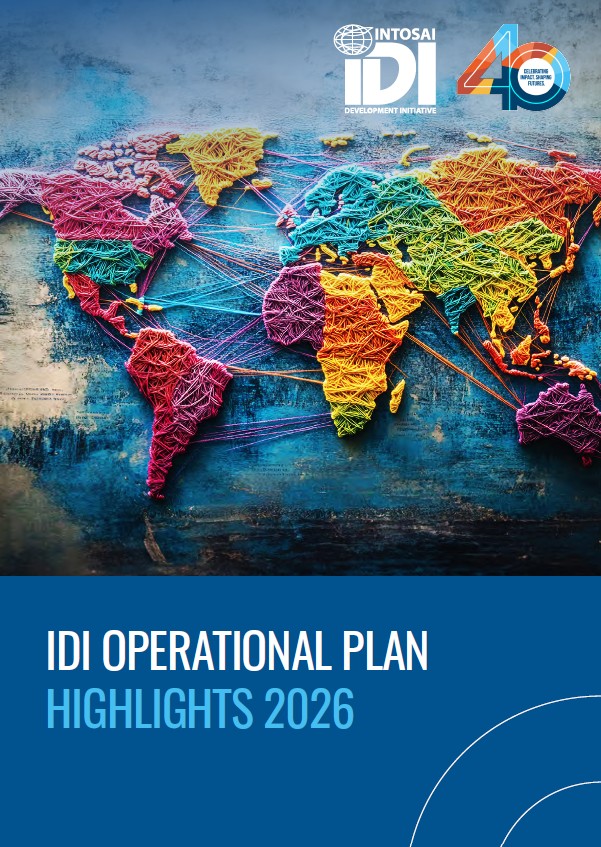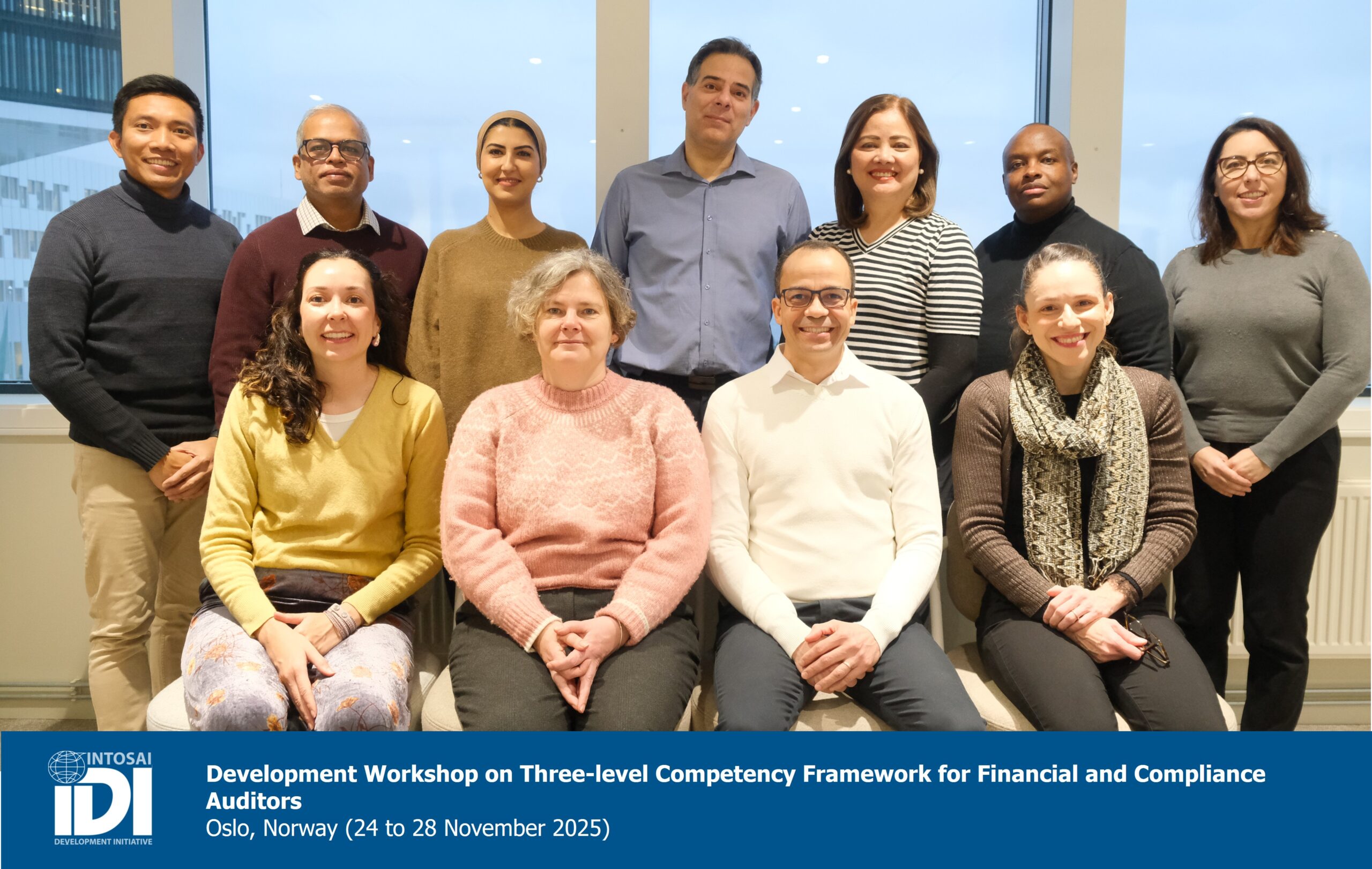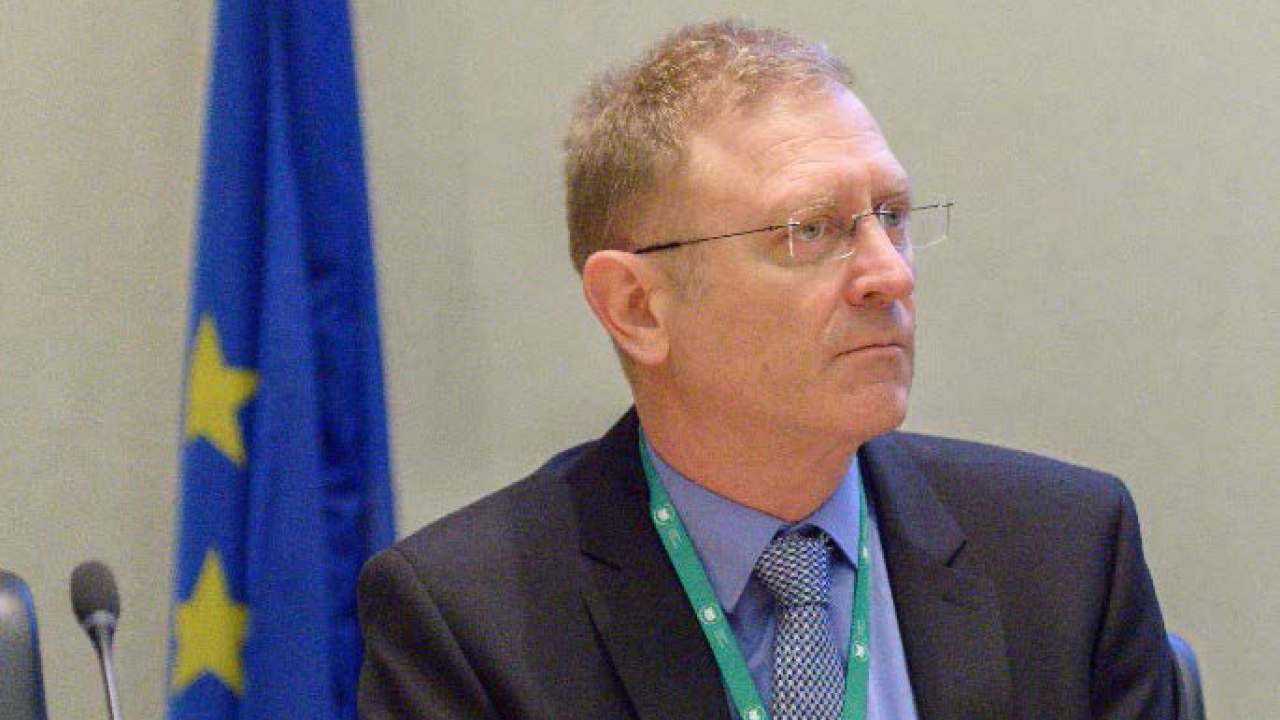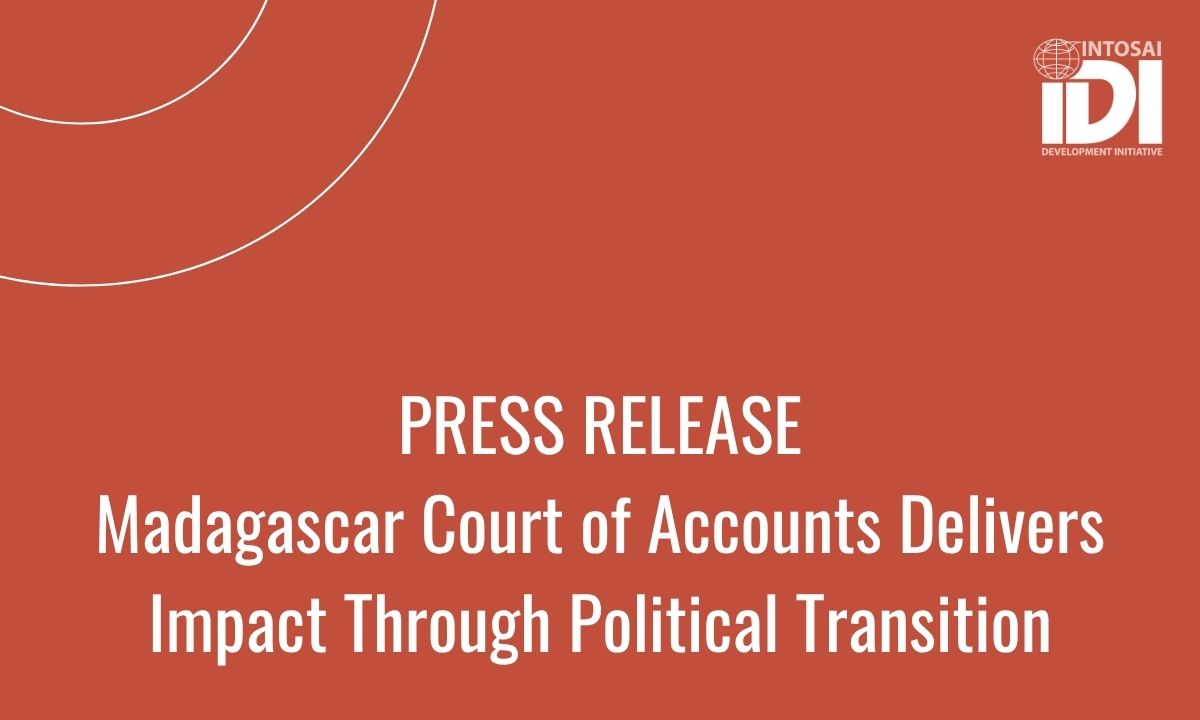‘It’s our people who make the difference!’ On 1 June 2020, Eduardo Ruiz García finished his mandate as the ECA’s SecretaryGeneral after more than 11 years.
By Gaston Moonen.
On 1 June 2020, Eduardo Ruiz García finished his mandate as the ECA’s SecretaryGeneral after more than 11 years. With over 30 years of working experience at the ECA, Eduardo Ruiz García both witnessed and initiated changes – adapting and reacting to and acting upon new developments in the EU’s audit environment. Looking back, he identifies a number of key aspects that the EU’s public auditor, and particularly its leadership and staff members, may consider for now and the future, both from a practical and strategic point of view.
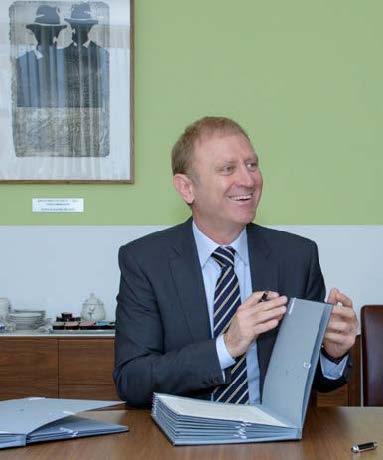
Strategic lessons from the pandemic
At the end of May 2020, Eduardo Ruiz García left the ECA in the midst of the first wave of the COVID-19 pandemic, as was foreseen before the start of the pandemic. This was not an easy step for him. ‘Leading the ECA’s administration through the pandemic was one of the most challenging and most difficult things during my time as Secretary- General.’ But he thinks it is also an important lesson on how the ECA can provide added value in times of crisis. ‘The first thing citizens expect from the European Union is that it ensures coherent action. This includes making sure that the rules and measures related to fighting the Covid-19 pandemic are consistently applied, by all Member States. However, what one can observe is that there are even differences within Member States. And I hope that the relief offered under the recovery fund will be available soon, to ensure social and economic cohesion in the Union. Moreover, we can learn lessons from this crisis for the political set-up of the Union, on how to improve our decision-making, and how to promote best our strategic interests and reduce our dependence on others.’
Eduardo believes that the ECA can look at a variety of issues here, to add value regarding process and outcome. ‘But in a smart way, looking at things where there is a role to play for auditors in the short term, for example looking at procurement procedures, crisis management on the spot, where EU authorities are involved. At the same time we must avoid interfering with the political authorities in the middle of a crisis.’ He believes that for the longer term the ECA needs to look at the horizon and look forward. ‘Such as projecting the consequences of the pandemic, remaining pragmatic and helping the political authorities to learn lessons quickly, so that the audit work can have an impact on how this crisis and future crises are mastered.’
He agrees that this might not be seen as part of the traditional role of an external public audit institution. ‘This can actually create a dilemma for auditors. On the one hand we have to follow procedures, rules and standards. But in any modern organisation – and audit is not an exception – you have to be creative, innovative, you have to adapt to change, this is necessary. And you cannot improvise that. Just because a pandemic arrives doesn’t mean that you can suddenly become creative. It is mainly a cultural thing. You have to be prepared, build this spirit of openness, curiosity, the ability to anticipate, the appetite for change. It has to be in the DNA of your organisation. And that takes years, I think.’ He adds that the ECA is close to being such an audit organisation. ‘But I think the ECA needs to take it a step further and be ready to take a risk, and to accept potential failures and errors. These last years I often heard us saying this, but in practice we may not always have been sufficiently daring.’
From an organisation of professionals to a professional organisation
When discussing what he sees as the biggest change in the ECA over the last 30 years, Eduardo does not have to think long. ‘When I started working for the ECA in 1989, I had the impression that my colleagues were professional auditors, very capable at what they were doing, with good skills and expertise. But pretty soon I realised, there was a lack of strategic orientation, structure and guidance. For example, at that time, we had no audit manual. I recall that at some moment I thought: “This is an organisation with very good professionals, but it is not a professional organisation.”’ He believes this has changed tremendously. ‘Now the ECA is a professional organisation, with good audit methodology, with clear standards in most areas, a more agile organisation, with a management more open to change than it used to be. We have been successful in creating this change .’
He also believes that the ECA has successfully adjusted to a new institutional role. ‘The ECA used to be more on the side lines, but is more active now, more focused on topics that are relevant to its stakeholders. As the EU’s public auditor, the ECA needs to stay close to the action in the EU.’ In his view, it will be important for the ECA to add value by having an impact and promoting trust in EU action. ‘As set out in its mandate, the ECA’s ambition must be to express an opinion on how the situation looks in reality on the ground. For the auditor, this means reporting on positive and negative things. And the impact will be the trust that the citizen can place in the accounts – and in the actions of the EU, relating to their performance.’ In his view, this requires selecting audit topics that matter and reporting on them objectively. ‘The ambition should go beyond finding errors, the ECA’s mission is wider: to report on the reality of the financial management, appropriately presenting both shortcomings and achievements.’
He believes the ECA has improved a lot in its reporting during the past years. ‘In my view there is still something lacking, which goes for many other external audit institutions: how to formulate recommendations. This can be quite difficult and tricky. It requires common sense and a balanced approach.’ For this, the auditor must be able to place findings in the right context. ‘In my life as an auditor, I have seen that a better result was sometimes achieved even if an error was made, than if the rules had been applied to the letter. Here common sense must kick in.’
A professional life in audit…but outside the ECA
|
Box 1 – Working for the INTOSAI Development Initiative The INTOSAI Development Initiative (IDI) is a not-for profit, autonomous implementing body operating from Norway, mandated by the International Organisation of Supreme Audit Institutions – INTOSAI, the global umbrella organisation of external public audit institutions – to support supreme audit institutions (SAIs) in developing countries to sustainably enhance their performance and capacity. |
In July 2020, Eduardo Ruiz García started a rather different job: as manager in the INTOSAI Development Initiative (IDI). After his first months working with the IDI he continues to be enthusiastic, calling it ‘a dream coming true.’ ‘The IDI is a fantastic place to work because it combines audit and development policy, which are two areas which I like very much.’ Then he reveals: ‘My happiest time at the ECA was when I was working for the predecessor of the ECA audit chamber currently auditing the EU’s external actions, so in third countries, together with colleagues like Michel Hervé, Philippe Froidure, John Speed and Jean-Michel Gavanier, for example regarding the European Development Fund. Audit and development.’
He explains that at the IDI they are lucky, since they have a very strong e-learning branch. ‘But one of the main problems is the difficulties SAIs are having in continuing their activities in the field, because some of them cannot continue auditing as the ECA does. Part of our work is, for example, coaching some of the SAIs’ audits, helping them put the audit together. The situation is not homogeneous, and for my work it was tough because I could not start on the spot, nor in Norway or my projects with SAIs all over the world.’
For Eduardo, the IDI is contributing in an area where he sees major opportunities for SAIs to add value: sustainable development. ‘I think this will be key. Sustainable development is not only an issue for developing countries, it is also most relevant to Member States and the EU.’ He adds that it is also about becoming a better institution and helping other audit institutions. ‘For example, in Sweden and in Norway SAIs have development programmes and carry them out. Several SAIs collaborate through the IDI, capacity development implemented through peers. For example, in the case of Madagascar, a project I am working on, we will have colleagues from France, Norway and Morocco.’
When speaking about contacts between the ECA and the IDI, it turns out that the ECA has participated in some of the IDI’s activities through workshops and in working groups. ‘But it has not done so yet as peer partner in a specific project for a specific country or region. I am sure our IDI management would be delighted to have the ECA participate in one such project and I invite the ECA to do so.’ He adds that it would be beneficial for the ECA to get involved. ‘You learn a lot from the others, too, as a mirror reflecting your own activities .’
Opening up to other knowledge organisations
As Secretary-General, Eduardo was very active in promoting a structured approach to knowledge management at the ECA. He explains that the main trigger for him to do so was his belief that, for a public audit institution, as for any organisation that depends on its people, its core knowledge is embedded in its staff. ‘Staff and knowledge are actually two faces of the same coin. So staff development is key for a knowledge organisation such as the ECA. I only fully realised this when I worked as manager in what is now the Directorate of Audit Quality Control in the ECA. Then I saw that the professional training we organised was good, but also, what I would call, too “endogamous”: most of the time we were training ourselves.’ He has no doubt that training on the job is very important. ‘But it should not be the only thing, or even be predominant. Especially, in times where many innovations are going on, you have to catch these developments outside.’
Eduardo decided to change the approach to the ECA’s knowledge management. ‘I wanted to open up to good practices outside, at other institutions, experts and academia. Because most of the new knowledge will come from universities, including pedagogical techniques to transfer such knowledge: knowledge and how to learn.’ To nourish their thinking he wanted to confront the auditors with a different environment. ‘And not only to learn but also to realise that what we were doing was quite good. To identify where we stood and where we needed to excel further.’
 He brings up another motivation for his endeavour: ‘One of the problems for public organisations is that you have relatively few incentives that you can offer to your staff. Things are quite regulated, limiting the tools available to motivate people. I think that our colleague – sorry, my former colleague – Magdalena Cordero, once defined it very well for the physical environment. She said something like “I have a vision of the ECA as a campus, with the garden in between the different buildings, the cafeteria and the ‘aula’ where people can meet.’ With a laugh, but then serious again: ‘I then said: “Agreed: let us organise the way we work as on a campus: to have work, events, conferences, discussions, people working together, also in the canteen, exploring in a class or meeting room, so making the campus idea more than merely physical.’
He brings up another motivation for his endeavour: ‘One of the problems for public organisations is that you have relatively few incentives that you can offer to your staff. Things are quite regulated, limiting the tools available to motivate people. I think that our colleague – sorry, my former colleague – Magdalena Cordero, once defined it very well for the physical environment. She said something like “I have a vision of the ECA as a campus, with the garden in between the different buildings, the cafeteria and the ‘aula’ where people can meet.’ With a laugh, but then serious again: ‘I then said: “Agreed: let us organise the way we work as on a campus: to have work, events, conferences, discussions, people working together, also in the canteen, exploring in a class or meeting room, so making the campus idea more than merely physical.’
Many will agree that the Eduardo Ruiz García put great energy into turning this idea into practice. During his mandate as Secretary-General the number of lectures and presentations, particularly by experts from outside the house, increased tremendously. ‘When I saw something interesting and we had the possibility and the capacity to do it I always tried to organise an event at our premises in Luxembourg. And most often with different layers: an open session in the ECA conference room, followed by a workshop for a more select group of people who also worked on that topic.’ He explains that the speaker always came for free, with only transportation and possibly hotel costs reimbursed. ‘For them it was also interesting to meet ECA people. To create more informal settings, we sometimes also organised working lunches, inviting people who would also be interesting for our guest to talk to. Because we sometimes forget that the ECA can be an interesting counterpart to discuss with.’
Eduardo Ruiz García hosting one of the many events he and his team organised
Creating an advanced line of defence
From his over 30 years at the ECA, Eduardo recalls that some topics always reappear when the discussion turns to long-term strategic objectives. One of them is the dilemma of being objective and fair while not being sensational and feeding into unjustified mistrust of public governance. ‘This is something most public audit institutions are struggling with and you have to find the right balance. As an auditor you would like to see impact in the way of improvements, but not contributing to scepticism and distrust. You have your legal obligations to report, the audit standards to follow. And a responsibility to report objectively. The question is how to achieve this best. This is a fine line and can be difficult.’
In any case, he is convinced that SAIs need to play their role when it comes to informing citizens. ‘And now we not only have the press, but also the social media. They play an increasingly important role in keeping the citizen informed and aware.’ Then he refers to a presentation he gave during a conference in Spain a number of years ago. ‘We were then discussing the first line of defence: risk management; the second line of defence – such as internal control, and also the third line of defence, which is the external auditor giving independent assurance. But what I call the ‘advanced’ line of defence is well-informed public opinion and citizens that are aware of what is going on, also regarding public finances. That is crucial.’
He explains that this advanced line of defence has only become more important in times of social media, where extreme views are easily expressed and enlarged upon. ‘This is an area where the ECA, as an audit institution, should use social media not only to inform people about our activities but also about how public finances are working, raising awareness. I think that the ECA is lucky to have the communication team it has because they recruited very committed people, with good skills in social media. This has changed communication by the ECA in the right direction.’
Making a difference for staff and therefore for the institution
When asked on which issue, which topic he felt that he contributed most as Secretary-General, Eduardo says that, in all modesty, he would like to mention two issues. ‘The first one, which is also the most emotional one for me, is the ECA’s response to the COVID -19 situation. For me it was crucial we handled this one as well as we could. And this is not really my achievement but the achievement of many people in the house. My pride lies in the privilege of working with all the people who helped us to successfully overcome the difficulties in the initial phase of the pandemic. The ECA continued to be operational and in mid-March 2020, 100% of our staff went into remote working within two days.’
He observes that the foundations for maintaining business continuity so effectively were laid well before, in terms of investments in IT, security, and health measures. Plus a flexible approach to dealing with the situation the best way you can. ‘Because you need to be practical. For example, I still remember somebody asking me, in March 2020 when the lockdown started, if a colleague could take his computer screen home. I replied: “The screen, the keyboard, even the chair if you want.” Later on, I understood that in other institutions they had not been that flexible. But for me it was clear that we had to do as much as possible to facilitate teleworking.’
The second issue Eduardo identifies as where he thinks he made a difference relates to staff development and knowledge acquisition. ‘I wanted to place both these aspects at the core of our management approach and I think we were successful in this. As an audit institution, you add value when you have a positive impact on how things are done on the ground. But how? Unlike a production line, the performance of an audit institution – be it in the public or private sector – relates to good governance, good procedures, the right tools and resources.’ He argues that this is multiplied by staff performance, which works as a kind of coefficient to increase your organisation’s performance. ‘You can have the best governance, the best procedures, etc., but if your staff’s performance is bad, your final performance will be meagre or could even be negative.’
Eduardo also considers that his influence as Secretary-General on the ECA’s governance was limited. ‘This is arranged for in the Treaty and is the College. Regarding audit procedures, I used to have some influence when I was in what is now called Audit Quality Control, but as Secretary-General, again: limited or no influence. I concluded that where I could really make a difference was in setting the right framework to increase staff performance.’ For this, he was also inspired by a presentation given by Victor Küppers, a Dutch professor from the University of Barcelona, who has also given TED talks on staff performance. ‘He spoke about people’s performance in the sense of a formula, which is: knowledge plus skills, multiplied by the attitude you have. He very much emphasised motivation: if you are motivated you will boost the combination of your knowledge and skills.’
Eduardo lights up as he continues. ‘I said to myself: “This is a nice formula and I can intervene to make a difference in all three: knowledge, skills and attitude.” Because in the end, it’s our people who make the difference! As to knowledge, we can work on audit techniques, analysis of data, economic analysis, public policy review, etc. And we did, for example through the Masters programme we developed and the statistical diploma, both with the University of Nancy. Or the summer school initiative with the University of Pisa, or our learning cooperation with the Commission and Deloitte, the private audit firm.’ Concerning skills, he gives as examples the training staff can have on oral, written and non-verbal communication, presentation techniques, leadership skills development and others. ‘We have boosted the courses on offer, and participation – relating to soft skills training.’
Regarding attitude he believes this relates to a large variety of issues: ‘This can range from inclusion in a peer review team, addressing gender and equality issues, ethical guidelines. And introducing signs of recognition beyond promotion and career development tools, such as the performance awards we introduced, and facilitating participation in studying at universities.’ Other elements he sees are creating sports facilities – the ECA ‘Makarena’ playfield, the ECA’s gym – or organising the staff summer party, supporting the ECA football or the ECA sailing team. ‘By offering such opportunities you increase the feeling among staff of belonging to an organisation that cares! And the ECA does.’
While discussing staff development – relating to knowledge, skills and attitude – as a key area where he tried to make a difference, Eduardo also identifies it as the area where he had to take the toughest decisions. ‘The most difficult issue for me as Secretary-General related to delicate staff matters. You have to decide on things that have quite an impact on individuals. This can relate to the choices you have to make regarding people, such as on promotions, but also on measures which can have an impact on a colleague’s career or on individual well-being. It includes a whole range of people’s issues you have to deal with. Those are difficult, of course part of your job as Secretary-General, but they nevertheless can be – and sometimes were – quite a burden.’
Contributing to trust, both outside and inside the ECA
For Eduardo it is clear that one of the core roles the ECA has to play is to contribute to trust, the trust EU citizens can have in EU measures and the organisations carrying them out. ‘This was the key theme of the 2018-2020 ECA Strategy and I think it will continue to be important for the future. The ECA’s main role is to help EU measures to have most added value, to help EU institutions to function better and show that they are held accountable for that. And I think the ECA needs to highlight the tasks the EU has committed to contribute to.’ In this respect, he explicitly refers to the Sustainable Development Goals (SDGs). ‘I really like these SDGs and I think it is the first time that there is really a global agenda, for the rich countries, for the poor countries.’
Eduardo also underlines the importance of using foresight as a tool for SAIs to identify topics that will matter in the future and optimise an SAI’s added value. ‘The COVID -19 pandemic has shown how fast circumstances and activities can change and foresight exercises can identify relevant areas for public auditors to consider: research, climate change, defence, new agricultural approaches, etc.’ He points out that the EU public wants to know how the EU budget, but also new instruments such as the Next Generation EU, have performed. ‘The ECA can provide insights into that, in particular through its performance audits, thereby contributing to this advanced line of defence I referred to earlier.’
Trust is also a key element in the relations he developed with his colleagues at the ECA. ‘Honestly, what I am very proud of was to be able to work with all my colleagues. This is not an empty phrase. It is a life experience ! I learned so much from different colleagues, from auditors, from translators, from IT experts, people in the administration, in security, my cabinet staff. Both from a professional and personal point of view. I consider myself very lucky to have been surrounded by these people. I had the privilege to work very closely to several ECA Presidents: J.O. Karlsson, J.M. Fabra Vallés and V. Caldeira. And this is what I really miss, my colleagues at the ECA. I miss the meetings with my managers, my office, my staff. But I also miss playing football with my colleagues, having a talk with a security colleague or with one of the drivers.’
For Eduardo, it is the staff and their diversity, in terms of age, nationality, knowledge and character that exemplify what the ECA stands for. ‘The ECA really offers a cosmopolitan professional environment. This needs to be preserved, for example by means of recruitment. We launched recruitment for IT specialists, data analysists, statisticians. I think this should be extended to other areas, to also bring in people with a social science background. Not all ECA staff need to be trained auditors to provide added value.’ This is the most important since for SAI, developing Digital Audit is paramount to remain relevant.
Speaking about trust also brings Eduardo to one of the things he regrets not pursuing further, which relates to teleworking. ‘I regret that I was not brave enough to push for teleworking before the ECA went into remote mode in March 2020, following the first lockdown. The more because I really wanted to. But I met a lot of resistance and I thought that without support it would be difficult to implement such a move.’ In his view, the willingness to embrace remote working is directly related to trust. ‘My vision of teleworking was that I did not want a set of complex rules. No, I wanted trust. If you want to go out and telework, then, as manager I would say: “Please, go ahead, do it.” And if there is a problem, if trust is abused, as a manager you have to tackle that. And this was difficult for some managers. But people feel responsible. This was already the case before the pandemic hit us, and was then demonstrated by ECA staff in their work and commitment when there was no other option than to work remotely.’
Then Eduardo concludes: ’This is also the main advice to my successor, Zac Kolias. Trust your staff! I am confident he will.’
To read more go to : https://www.eca.europa.eu/en/Pages/Journal.aspx
Initiative
Topics
Recent News
